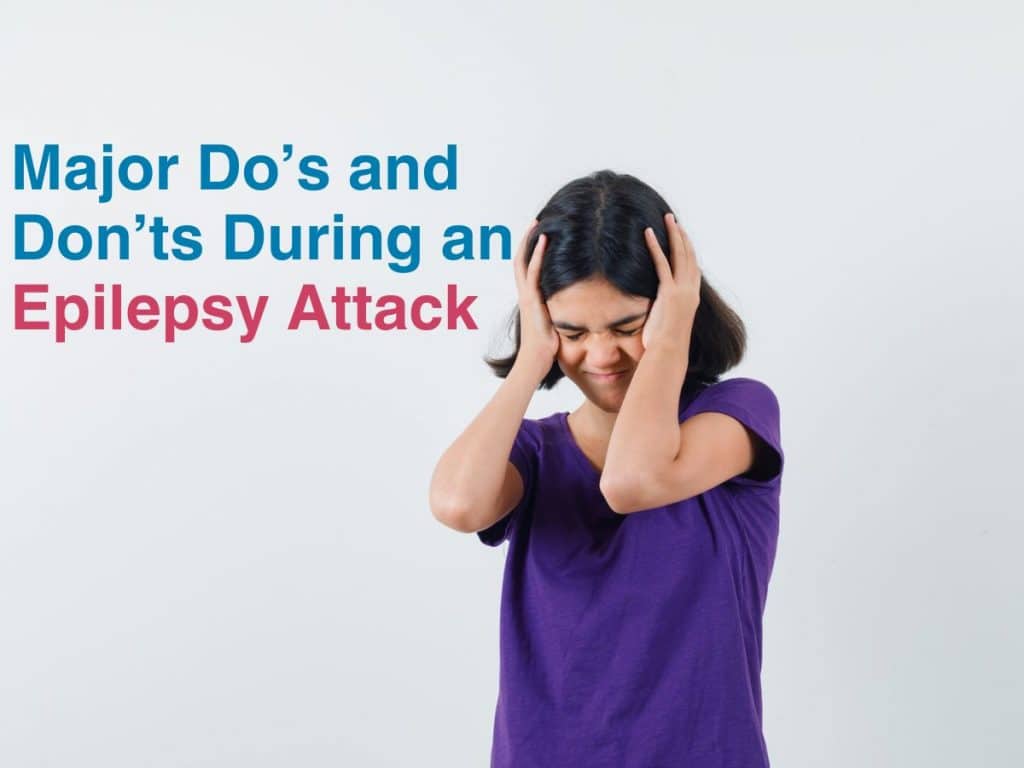
Major Do’s and Don’ts During an Epilepsy Attack

Epilepsy is also called “mirgi”, “valippu”, “murcha rogam” in hindi, tamil and telugu respectively. They all mean the same – a medical condition in which there is atypical electrical activity in the brain. It is characterised by
uncontrollable convulsions (shake or a fit), or loss of consciousness. If it happens once, then it is a seizure. But it is called an epileptic attack if an individual has two or more unprovoked seizures within the span of over 24 hours.
The symptoms vary depending on the area of the brain that gets affected.
What to do and what not to do during an epilepsy attack
Here are some important pointers you should consider following during an epilepsy attack-
The Do’s-
Maintain your composure and stay calm. Remember this- seizures are self-limiting, and hence will go away in a few minutes. So, wait for it to go away. Time the duration of attack, as this is helpful information for medical personnel.
Immediately, make them lie down on a flat surface, on their side. This is to ensure that any vomit or saliva does not cause obstruction of the airway. Try to direct them away from stairs or any other obstructions. Remove any tight
clothing and ensure there are no sharp objects around, or anything that they may slip and fall on.
The Don’ts-
Never try to restrain them. They will stop convulsing in a few minutes. Do NOT give them a key or any object to hold. They may injure themselves in the process. Never try to force their mouth open with an object. Don’t leave them alone
afterwards. Don’t give them any food or drink immediately. Caregiving Tips for Epilepsy Patients- Taking care of someone having seizures means you need to be prepared at all times. You can do this by- Learning about epilepsy and its
causes Ensuring that they take their medication on time. Learning to recognize triggers and early warning signs before an attack occurs.
Conclusion
Epilepsy has been around for many millennia, and was often called the “divine disease” by the ancients. There are many myths and misinformation around the issue. The causes may be genetic, idiopathic or due to traumatic injury. But, it
is important to remember that medication can control this, and that these people are in no way less competent than the rest of us.
Frequently Asked Questions

Dr. Sai Chandra Niveditha A.
MBBS, MD (General Medicine),MRCP (UK-SCE, Neurology)
DrNB (Neurology, KMC, Mangalore, Manipal Academy),
Consultant Neuro Physician






